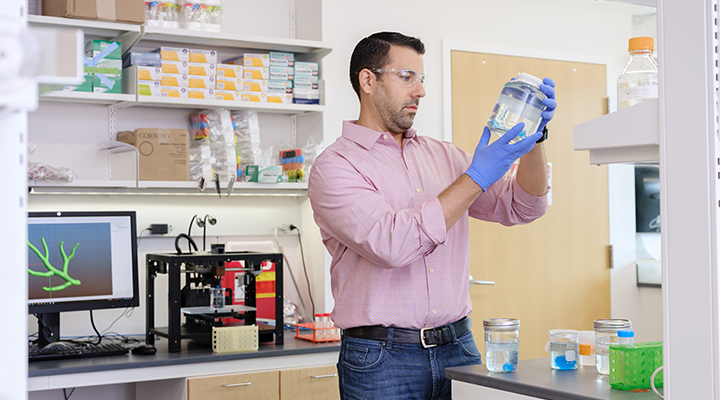
Imprinting medical history
Professor Adam Feinberg uses engineering principles to regenerate human tissue—and founding a future with better disease treatments.
3-D printers captured Adam Feinberg’s attention. As he noted the wide variety of applications, Feinberg raised an important query: What if it could work with soft materials, like cells? That question has generated some of the most important biological engineering advancements, potentially changing treatment and transplants as we know it.
Today, Feinberg and his team are using 3-D printers to build human tissue from scratch: “We’ve been able to develop the technology to print soft biological materials like collagen — and we’re one of the first in the world to do that.”
Feinberg’s revolutionary research is leading to the generation of pieces of human heart muscle in a petri dish for medical research trials, potentially allowing cancer patients to see how their cells would react to chemotherapy, or one day restoring a blind person’s sight through a manufactured cornea. In the future, he hopes that his efforts will lead to new disease treatments, accelerate drug therapies and make them both less costly.
Thanks to Feinberg’s inventive mindset, and the combination of materials science, manufacturing, developmental biology and stem cell science, those pieces are coming together faster than ever before. The research he’s leading is poised to make an astounding impact on the medical world as we know it.
“The focus on interdisciplinary applications is almost fundamental to true innovation,” he says. “Because of CMU’s forward-thinking nature, we’re making tremendous strides in the area of repair and replacement to treat disease. This isn’t science fiction. It will happen.”